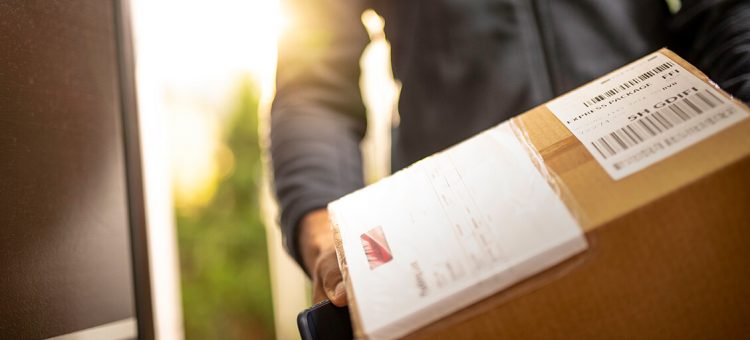Amazon’s CEO Jeff Bezos brought the idea of “customer obsession” to corporate leaders everywhere, but that focus has brought challenges amidst the coronavirus pandemic. With Amazon focused on delivering exceptional value to its customers, its frontline employees have had to take on greater risks in recent months in order to maintain the level of service that customers have come to expect, and doing so often means putting their own health and that of their families at risk.
In a new Recode|SurveyMonkey poll, 64% of adults in the U.S. say they subscribe to Amazon Prime, up slightly from 61% in a November 2019 CNBC|SurveyMonkey poll. Three in 10 people (31%) say they’re using Amazon now more than they were before the start of the coronavirus outbreak, while 46% say they’re using it about as much as before and 18% are using it less than before.
Most people (56%) say their impression of Amazon has stayed about the same during the coronavirus pandemic, while about even numbers say it has gotten better (21%) and gotten worse (20%).
But trend data tell a more extreme story. Overall, 58% of people in the latest survey have a positive impression of the company, 17% have a negative impression, and 23% are neutral. In a January Fortune|SurveyMonkey poll, however, 74% of people had a positive impression of Amazon, 13% had a negative impression, and 11% were neutral. Those numbers have declined across the board by gender, age, race/ethnicity, and income.Amazon Prime subscribers tend to have particularly rosy views of the company: 68% view it positively. Just over half of people (52%) who use Amazon but are not Prime subscribers say they view the company favorably, as do just 16% of non-Amazon customers.
Amazon’s focus on its customers is apparent. More than four in 10 people (43%) say Amazon treats its customers better than average, while 49% say it treats them about average and just 3% say worse than average. On the other hand, just 17% of people say Amazon treats its workers better than average, 54% say about average, and 18% say worse than average.
A majority of people (57%) say their impression of how Amazon treats its frontline workers has had no effect on their Amazon shopping habits, while 16% say they have been more likely and 22% say they have been less likely to shop with Amazon based on their impression of how the company treats its workers.
But, those who have strong views on Amazon’s treatment of its workers are likely to act on them. Among those who think Amazon treats its warehouse employees better than average, 41% say this makes them more likely to shop with the company. Among those who say Amazon treats its warehouse workers worse than average, 62% say this makes them less likely to shop with the company.
For full results, click through the interactive toplines below.
Read more about our polling methodology here.
Question text:
Do you have an overall positive or negative impression of Amazon?
Would you say Amazon treats its customers:
Would you say Amazon treats its warehouse employees:
Does your household subscribe to Amazon Prime?
Has your impression of Amazon gotten better or worse during the coronavirus pandemic, or has it stayed about the same?
Since the start of the coronavirus outbreak, have you been shopping on Amazon more, less, or about as much as before?
Has your impression of how Amazon treats its frontline workers made you more or less likely to shop with them, or has it had no effect?



